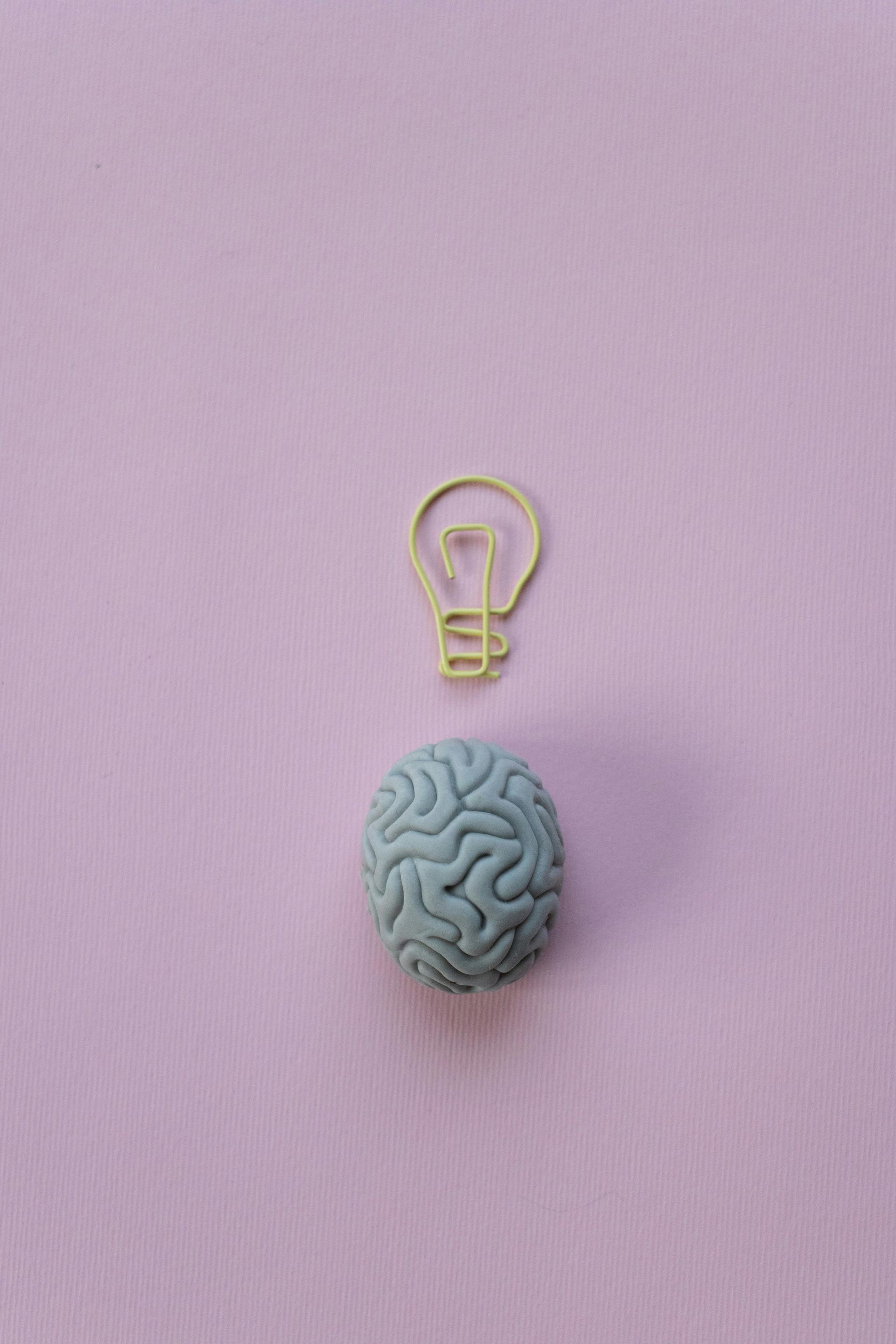Blog Layout
The Link Between Exercise and Mental Health: Harnessing the Power of Physical Activity for a Healthy
Brittany Barberian • July 15, 2023
Introduction
In today's fast-paced and stressful world, maintaining good mental health has become a crucial aspect of our overall well-being. While there are various strategies to support mental health, one powerful and accessible tool stands out: exercise. Research has consistently shown a strong connection between exercise and mental health, demonstrating its ability to improve mood, reduce symptoms of anxiety and depression, enhance cognitive function, and promote overall mental well-being. In this blog post, we will delve into the profound benefits of exercise for mental health, explore how it affects our brain, delve into why exercise is so impactful, and provide examples of exercises that can be incorporated into your routine to improve mental health and brain function.
Benefits of Exercise for Mental Health
Improved Mood and Reduced Symptoms of Depression
Engaging in regular exercise has been proven to boost mood and alleviate symptoms of depression. Physical activity stimulates the release of endorphins, often referred to as "feel-good" hormones, which can enhance feelings of happiness and well-being. Exercise also promotes the growth and connectivity of neurons in the brain regions associated with mood regulation, such as the hippocampus.
Reduced Anxiety and Stress
Exercise serves as a natural stress reliever and anxiety reducer. Physical activity helps to reduce the levels of stress hormones, such as cortisol, while increasing the production of neurotransmitters like serotonin, which contributes to feelings of relaxation and calmness. By engaging in exercise, individuals can effectively manage and reduce their anxiety levels, leading to improved mental health.
Enhanced Cognitive Function
Regular exercise has a profound impact on cognitive function and brain health. It improves memory, attention, and concentration, as well as enhances creativity and problem-solving abilities. Exercise promotes the production of growth factors that support the development of new neurons and strengthen existing neural connections, ultimately leading to improved cognitive performance.
Increased Self-Esteem and Body Image
Exercise plays a pivotal role in fostering a positive self-image and boosting self-esteem. Engaging in physical activity can improve body image, as it helps individuals feel stronger, more confident, and in control of their physical well-being. This positive self-perception contributes significantly to mental health and overall well-being.
Better Sleep Quality
Exercise has a positive impact on sleep quality and can alleviate sleep disorders such as insomnia. Physical activity helps regulate the sleep-wake cycle, promotes relaxation, and reduces the symptoms of sleep deprivation. By incorporating exercise into their routine, individuals can experience more restful sleep, which is crucial for mental health and cognitive function.
How Exercise Affects the Brain
Neurotransmitter Regulation
Exercise influences the levels and activity of various neurotransmitters in the brain, including serotonin, dopamine, and norepinephrine. These neurotransmitters are crucial for regulating mood, motivation, and overall mental well-being. By engaging in regular exercise, individuals can help balance these neurotransmitters, leading to improved mental health.
Neuroplasticity and Brain Structure
Exercise stimulates neuroplasticity, which refers to the brain's ability to adapt and reorganize itself in response to experiences and environmental changes. Physical activity promotes the growth of new neurons, increases synaptic plasticity, and strengthens neural connections. These processes contribute to improved brain structure, function, and overall cognitive performance.
Stress Reduction and Cortisol Regulation
Chronic stress can have detrimental effects on the brain and mental health. Exercise helps combat stress by regulating cortisol levels and reducing the impact of stress on the brain. By engaging in physical activity, individuals can lower their stress levels and protect their mental well-being.
Why Exercise is So Impactful for Mental Health
Biological Factors
Exercise has a direct impact on the biological mechanisms that influence mental health. It promotes the release of endorphins, neurotransmitters, and growth factors that contribute to positive mental states, improved mood, and enhanced cognitive function. These biological changes have a profound impact on mental health outcomes.
Social Interaction and Support
Many forms of exercise provide opportunities for social interaction and support, which are vital for mental health. Group exercises, sports, and fitness classes allow individuals to connect with others who share similar interests, providing a sense of community, support, and camaraderie. The social aspect of exercise contributes to improved mental well-being and can combat feelings of loneliness and isolation.
Empowerment and Sense of Control
Engaging in regular exercise empowers individuals and gives them a sense of control over their physical and mental well-being. By setting goals, tracking progress, and witnessing improvements in strength, endurance, or overall fitness, individuals develop a sense of achievement and control over their lives. This empowerment positively impacts mental health and fosters a resilient mindset.
Types of Exercises to Improve Mental Health and Brain Function
Aerobic Exercises
Aerobic exercises, such as running, swimming, cycling, or dancing, are particularly effective for improving mental health. These activities increase heart rate and oxygen flow to the brain, stimulating the release of endorphins and enhancing cognitive function. Aim for at least 150 minutes of moderate-intensity aerobic exercise per week for optimal mental health benefits.
Strength Training
Strength training exercises, such as weightlifting or bodyweight exercises, have unique benefits for mental health. They promote the growth of new neurons, improve cognitive function, and increase self-esteem. Incorporate strength training exercises into your routine at least two days a week to experience these benefits.
Mind-Body Exercises
Mind-body exercises, such as yoga, tai chi, or Pilates, combine physical movement with mindfulness and relaxation techniques. These exercises reduce stress, promote mental clarity, and improve overall well-being. Practicing mind-body exercises for a few minutes each day can have a significant positive impact on mental health.
Outdoor Activities
Engaging in outdoor activities, such as hiking, gardening, or nature walks, provides additional benefits for mental health. Spending time in nature reduces stress, enhances mood, and promotes feelings of well-being. Incorporate outdoor activities into your exercise routine whenever possible to maximize mental health benefits.
Conclusion
Exercise is a powerful tool for improving mental health and promoting overall well-being. By engaging in regular physical activity, individuals can experience improved mood, reduced symptoms of anxiety and depression, enhanced cognitive function, and increased self-esteem. Understanding the link between exercise and mental health empowers individuals to take control of their well-being. Start incorporating aerobic exercises, strength training, mind-body exercises, and outdoor activities into your routine, and harness the transformative power of exercise for a healthy mind. Prioritize your mental health by prioritizing exercise.
Share
Tweet
Share
Mail

By Alex Risberg LICSW Candidate
•
December 17, 2024
Mindfulness-Based Cognitive Therapy (MBCT) is a form of therapy that was created to treat depression, specifically treatment-resistant depression. Developed by Zindel Segal, John Teasdale, and Mark Williams, MBCT combines elements of cognitive therapy with mindfulness meditation. Research has shown that MBCT creates structural changes within brain areas that are associated with depression (Brewer et al., 2011). This means that MBCT reforms the brain, something that antidepressant medications have not been shown to do. This blog post will introduce the main ideas behind MBCT and briefly review the research backing this effective treatment option.

By Cooper Dubuque CMHC
•
November 5, 2024
Dream analysis is often misunderstood or overlooked in therapy, but research shows it can be a powerful tool with many benefits for treatment. It can help clients gain self-awareness, engage more deeply in therapy, and address and explore core issues. It also can help foster a safe, trusting environment, helping therapists understand their clients better. Using dream analysis can provide a degree of separation that has even been used to support terminal cancer patients, helping them discuss difficult topics like health and mortality.

By Brittany Barberian
•
April 29, 2024
Medication management in mental health recovery is a critical aspect of treatment, often overlooked or misunderstood. For many individuals, medication is an essential component of their journey to well-being. This blog post will delve into the importance of medication management, how medications can help with mental health issues, and provide strategies for effective medication management. Whether you are concerned about your own medication management or are supporting someone on this journey, this guide will offer valuable insights. The Importance of Medication Management Medications play a crucial role in treating various mental health conditions, including depression, anxiety disorders, bipolar disorder, schizophrenia, and more. Here's why medication management is of utmost importance: 1. Stabilizing Symptoms: Medications can help alleviate the distressing symptoms of mental health issues, providing much-needed relief. They can stabilize mood, reduce anxiety, and control psychosis, allowing individuals to regain control of their lives. 2. Improved Quality of Life: By managing symptoms effectively, medications enable individuals to engage more fully in their personal and professional lives, fostering a better quality of life. 3. Prevention of Relapse: Proper medication management can help prevent relapses, reducing the likelihood of recurring episodes and the associated setbacks. 4. Reducing Risk of Self-Harm or Suicide: In some cases, psychiatric medications can be life-saving by reducing the risk of self-harm or suicide, especially during times of acute crisis. How Medications Can Help with Mental Health Issues Understanding how medications work is essential for anyone navigating mental health recovery: 1. Balancing Neurotransmitters: Many mental health conditions are linked to imbalances in brain chemicals called neurotransmitters. Medications work by either increasing or decreasing the levels of specific neurotransmitters, which can help regulate mood and cognition. 2. Stabilizing Mood: Mood stabilizers, such as lithium or anticonvulsants, are commonly prescribed for conditions like bipolar disorder. They help keep mood swings in check, preventing extreme highs and lows. 3. Alleviating Anxiety: Medications like selective serotonin reuptake inhibitors (SSRIs) and benzodiazepines can help reduce symptoms of anxiety, making daily life more manageable. 4. Easing Psychosis: Antipsychotic medications are used to manage symptoms of schizophrenia and related disorders, such as hallucinations and delusions. 5. Boosting Serotonin: Some antidepressants work by increasing the levels of serotonin, a neurotransmitter associated with mood regulation. This can help combat depression and anxiety. Strategies for Effective Medication Management Navigating medication management can be challenging, but the following strategies can simplify the process: 1. Open Communication: Maintain open and honest communication with your healthcare provider. Discuss any concerns or side effects you experience, and work together to find the right medication and dosage. 2. Adherence: Consistently take medications as prescribed. Set up a routine or use pill organizers to avoid missing doses. 3. Educate Yourself: Understand your condition and the medications you're taking. This empowers you to be an active participant in your treatment. 4. Monitor Side Effects: Be aware of potential side effects and report them to your healthcare provider. Adjustments can often be made to minimize discomfort. 5. Set Realistic Expectations: Medications may take time to show their full effect. Set realistic expectations and understand that not all medications work for everyone. 6. Holistic Approach: Medication is just one part of mental health recovery. Combine it with therapy, lifestyle changes, and a strong support system for comprehensive treatment. 7. Regular Check-Ins: Stay engaged with your healthcare provider for regular check-ups and adjustments to your treatment plan. Conclusion Medication management in mental health recovery is a multifaceted journey. Medications can play a crucial role in stabilizing symptoms, improving the quality of life, and preventing relapse. Understanding how medications work and applying effective management strategies is key to a successful recovery. Remember, you are not alone on this journey, and there is help and support available. By taking a proactive approach and working closely with healthcare providers, you can navigate the challenges of medication management and move towards a path of healing and well-being.

By Brittany Barberian
•
February 14, 2024
Introduction: Valentine's Day, with its romantic ideals and celebratory fervor, can evoke a spectrum of emotions. At Compass of Hope, we recognize the impact this day can have on mental well-being, whether you're in a relationship or navigating singleness. Let's explore the multifaceted relationship between Valentine's Day and mental health, offering strategies for a day filled with self-love and genuine connection, irrespective of your relationship status. Valentine's Day and Mental Health: A Complex Relationship The day dedicated to love can, paradoxically, spotlight feelings of loneliness, inadequacy, and stress for many. From the pressure to find the perfect gift to the portrayal of idyllic love on social media, Valentine's Day can amplify insecurities and stressors, affecting mental health. Facing the Challenges: Singleness: The emphasis on romantic love can exacerbate feelings of loneliness or isolation for single individuals. It's crucial to remember that self-worth is not tied to relationship status and to celebrate self-love and other forms of love in life. Financial Stress: The commercial aspect of Valentine's Day can lead to anxiety about the cost of gifts and experiences. It's important to focus on meaningful, heartfelt gestures that don't strain finances. Time and Energy: Balancing work, personal commitments, and the expectation to curate a special day can be overwhelming. Prioritizing self-care and setting realistic expectations can alleviate this pressure. The Pressure to Impress: The desire to create a perfect Valentine's experience can lead to stress and disappointment. Authenticity and open communication with your partner about expectations can foster a more enjoyable and less pressured day. Social Media vs. Reality: The portrayal of perfect relationships on social media can distort expectations. Embracing and celebrating your unique relationship or self-love journey is key. Strategies for a Positive Valentine's Day: Self-Compassion: Whether single or in a relationship, practice self-love and kindness, recognizing that self-worth is inherent and not dependent on external validation. Creative Expression: Opt for handmade gifts or shared experiences that reflect genuine emotion rather than material value. Setting Boundaries: It's okay to opt-out of Valentine's Day celebrations if it causes stress or discomfort. Honouring your feelings is a form of self-care. Community and Connection: Spend time with loved ones, friends, or community members who uplift you, celebrating love in its many forms. Digital Detox: Consider taking a break from social media to avoid comparison and focus on real-life connections and self-reflection. Conclusion: Valentine's Day, with all its complexities, offers an opportunity to reflect on love, expectations, and personal well-being. By embracing self-compassion, authenticity, and connection, the day can be a source of joy and fulfillment, regardless of how you choose to celebrate. At Compass of Hope, we're here to support your journey toward a balanced, healthy relationship with yourself and others, on Valentine's Day and beyond.

By Brittany Barberian
•
February 1, 2024
Introduction In the quest for effective mental health treatment, Eye Movement Desensitization and Reprocessing (EMDR) has emerged as a groundbreaking approach, particularly for individuals grappling with the effects of trauma. This comprehensive guide is designed to enlighten those considering EMDR therapy as a pathway to healing. What is EMDR? EMDR is a psychotherapy technique originally developed by Francine Shapiro in the late 1980s. It's designed to alleviate the distress associated with traumatic memories. Unlike traditional talk therapy, EMDR focuses on the emotional and psychological symptoms triggered by traumatic experiences. The Science Behind EMDR EMDR therapy is based on the Adaptive Information Processing model. This model posits that trauma can disrupt the brain's natural information processing system, leaving the traumatic memory unprocessed and causing ongoing distress. EMDR aims to kickstart and facilitate the brain's natural healing process. Who Can Benefit from EMDR? EMDR has proven effective for individuals with various trauma-related issues, including PTSD, anxiety, depression, and specific phobias. It's also helpful for those struggling with the emotional aftermath of personal loss, violence, or abuse. The EMDR Process: A Step-by-Step Guide History and Treatment Planning: The therapist assesses the client's history and develops a treatment plan. Preparation: The therapist introduces the client to the EMDR process and establishes trust. Assessment: The specific traumatic memory to be targeted is identified, along with associated beliefs and physical sensations. Desensitization: The therapist guides the client through sets of bilateral stimulation (typically eye movements), targeting the traumatic memory. Installation: The goal is to strengthen positive beliefs. Body Scan: Checking the body for any residual tension. Closure: Returning the client to equilibrium at the end of each session. Reevaluation: Reviewing the progress made. Who Can Administer EMDR? EMDR should be conducted by a trained and licensed mental health professional who has undergone specific training in EMDR therapy. Effectiveness and Success Rates Studies have shown that EMDR can be an effective treatment for trauma, with many patients experiencing substantial relief from their symptoms. The success rate varies, but research suggests that it can be highly effective, especially for PTSD. Supporting Research and Success Stories Numerous studies and personal narratives affirm the effectiveness of EMDR. For instance, a study by the EMDR Institute found significant improvements in trauma symptoms following EMDR therapy. How to Support Loved Ones Undergoing EMDR Supporting someone undergoing EMDR involves understanding the process, being patient, and offering emotional support. It’s crucial to respect their healing journey and provide a safe space for them to share their experiences. Choosing the Right EMDR Therapist Finding the right therapist is crucial. Compass of Hope offers EMDR treatments, provided by dedicated professionals, licensed specifically in EMDR. Referrals from healthcare providers or trusted online directories can be a good starting point, if you are unsure of where to find a licensed professional in your area. Conclusion EMDR represents a beacon of hope for many who have been shadowed by the aftermath of traumatic experiences. It offers a unique, scientifically-backed approach to mental health treatment, emphasizing the brain's innate capacity to heal from trauma.
Working Hours
CONTACT
Phone: (603) 824-3555
Fax: (603) 935-9389
Email: contactus@compassofhope.com
Billing: Extension 4, billing@compassofhope.com
Hooksett Office: 11 Kimball Drive Suite 104-105 Hooksett, NH 03106
(603) 824-3555 -
Extension 1
Hampton Office: 433-435 Lafayette Road Hampton, NH 03842
(603) 824-3555 -
Extension 2
Concord Office: 64 North State Street Concord, NH 03301
(603) 824-3555 -
Extension 3





